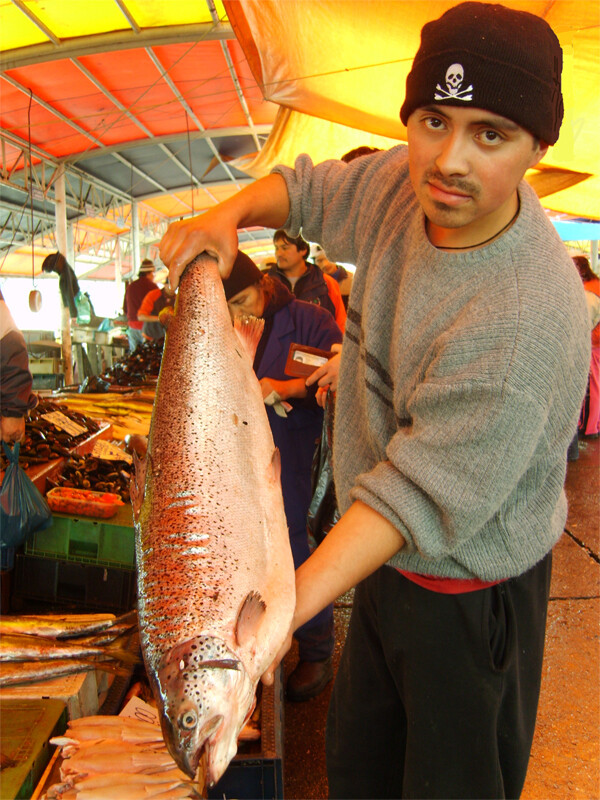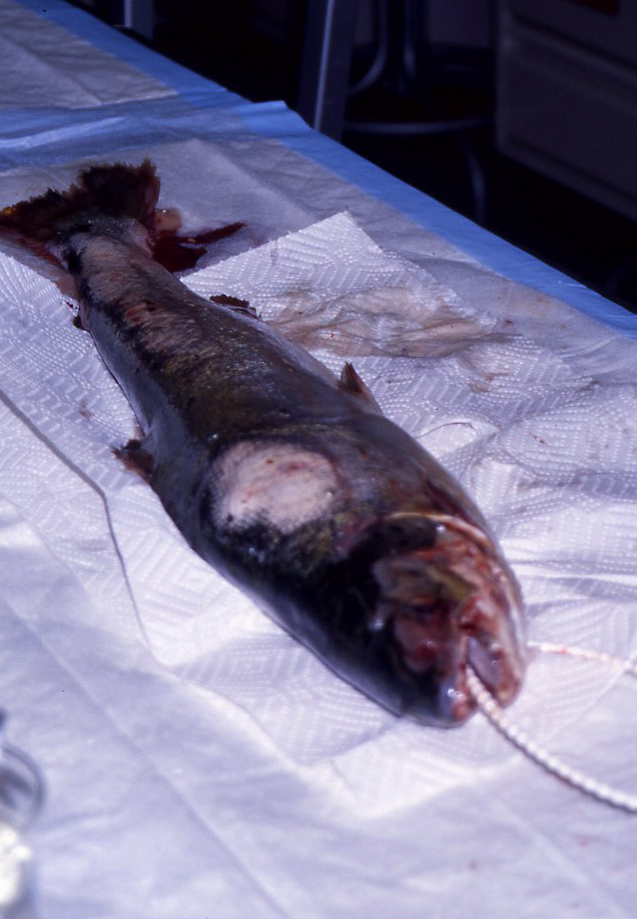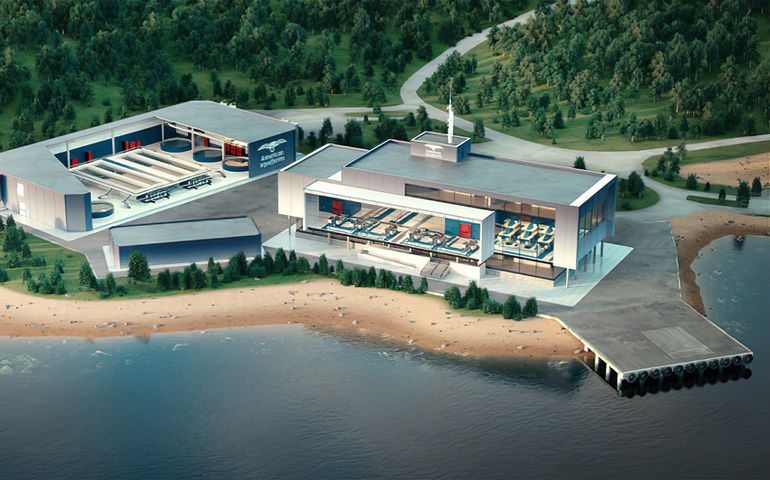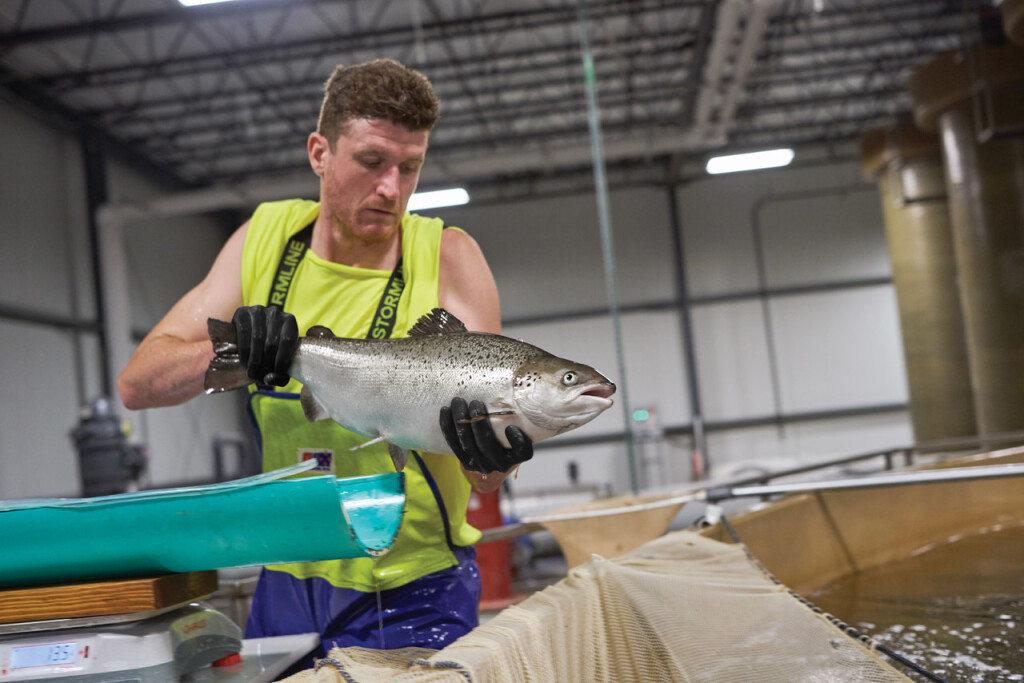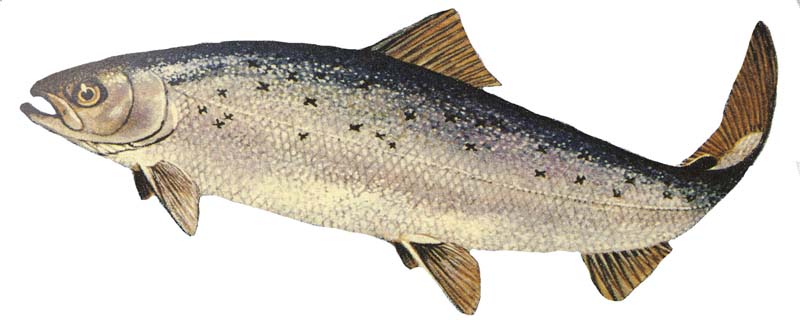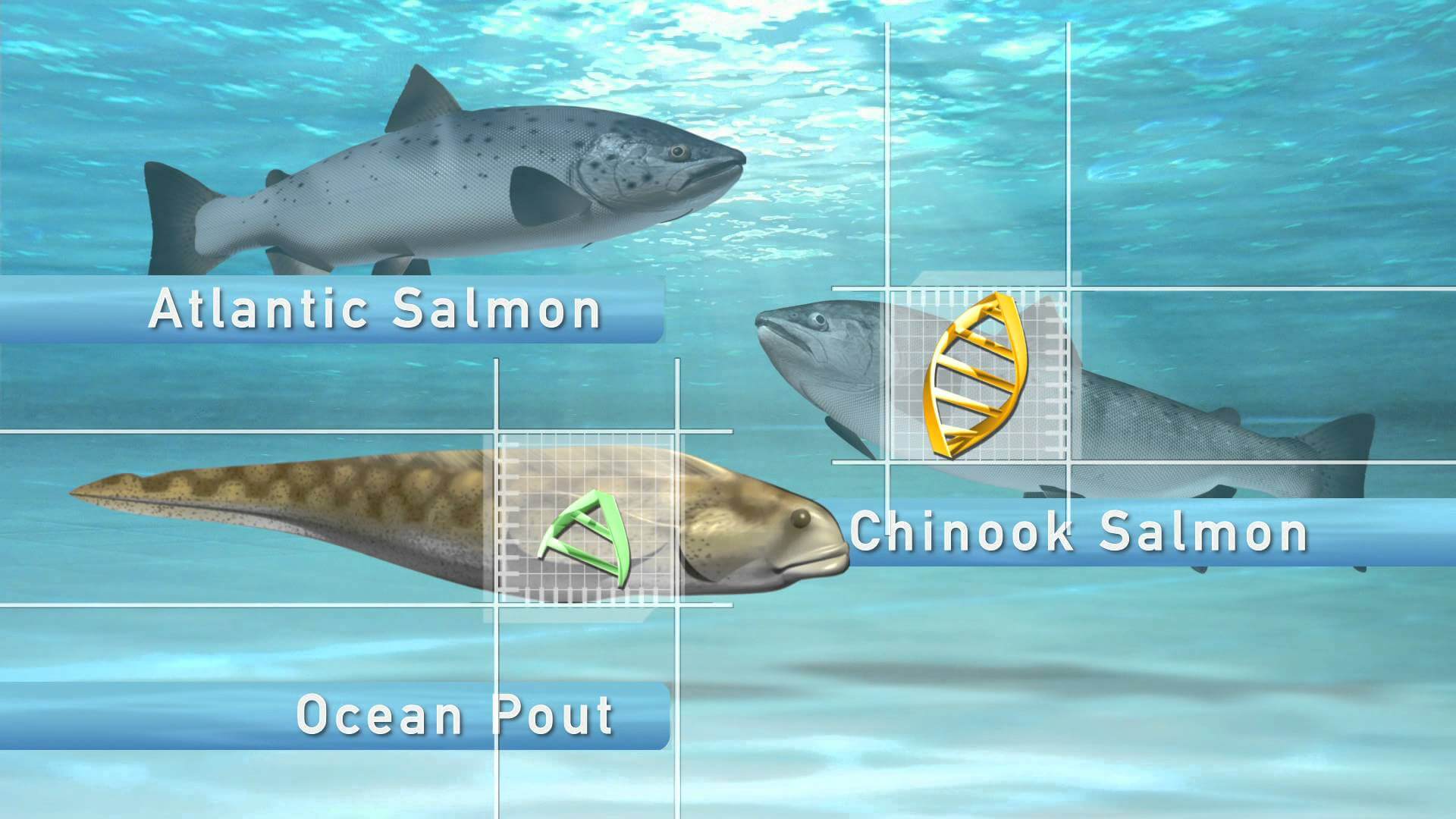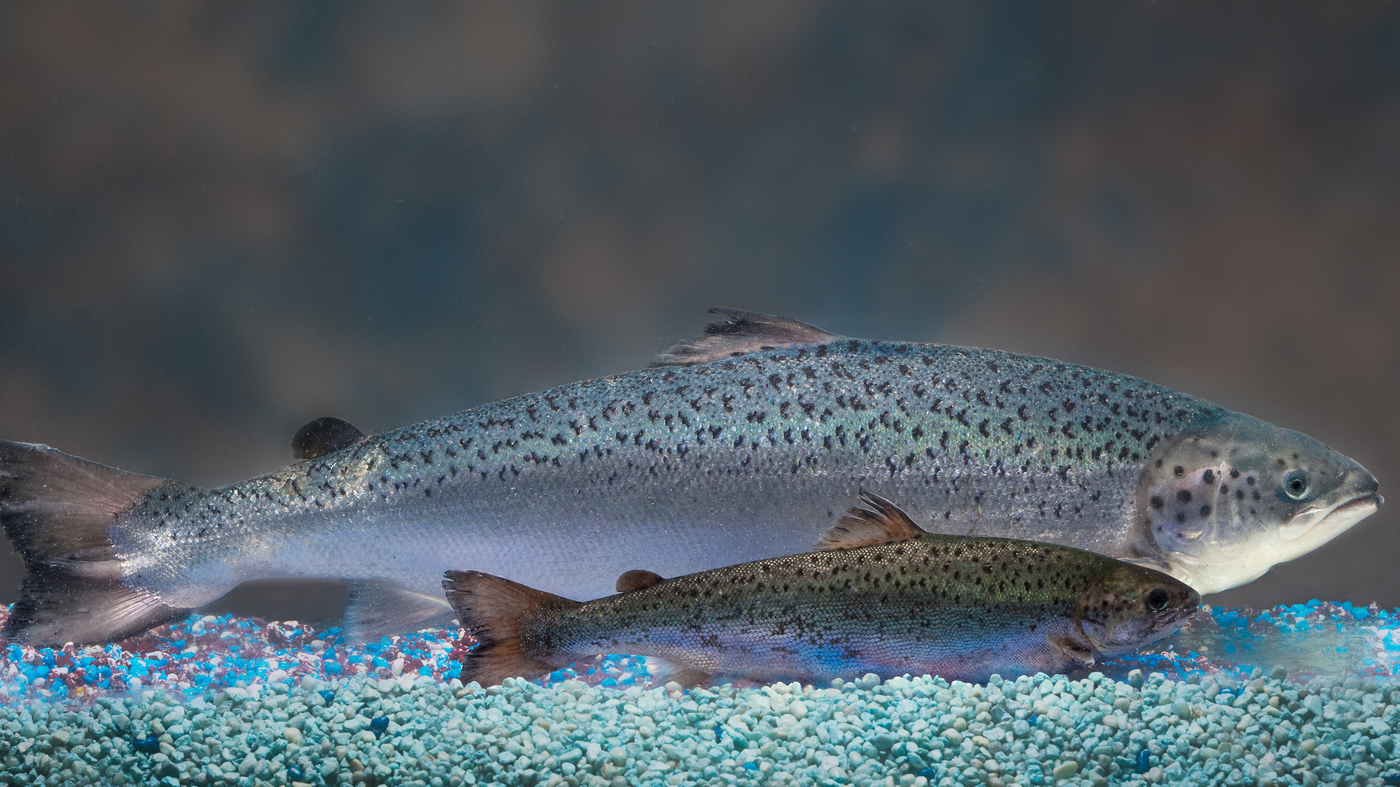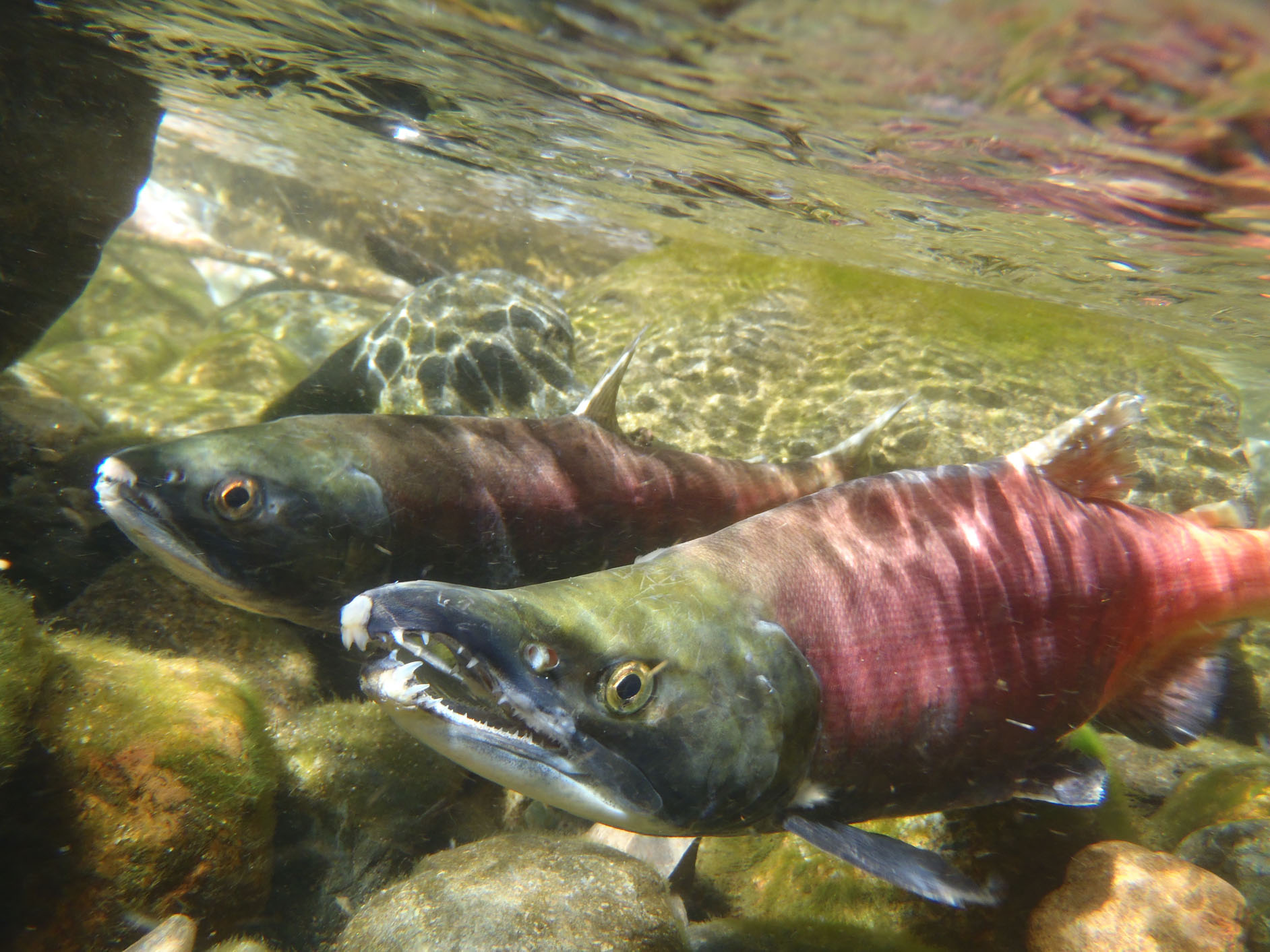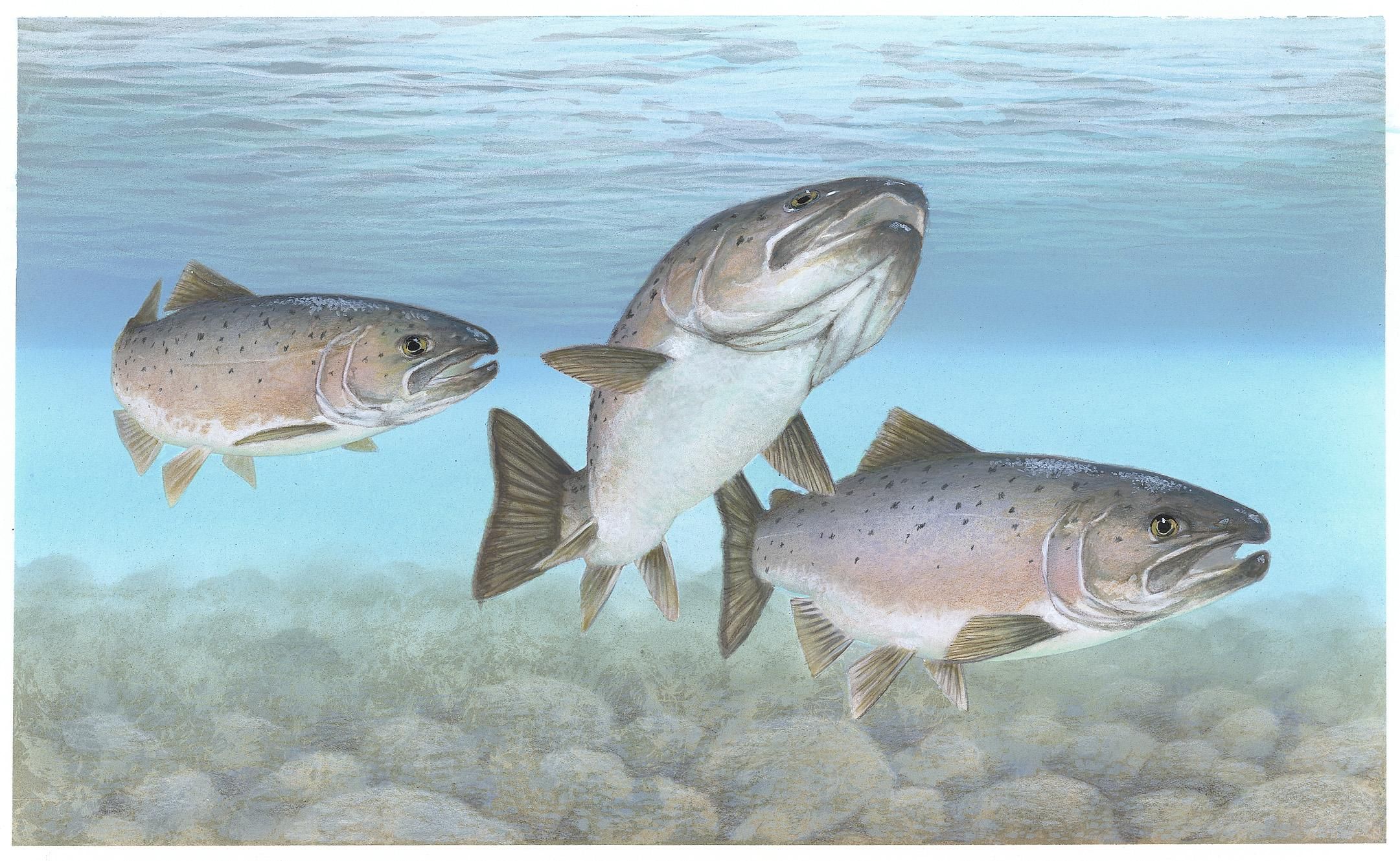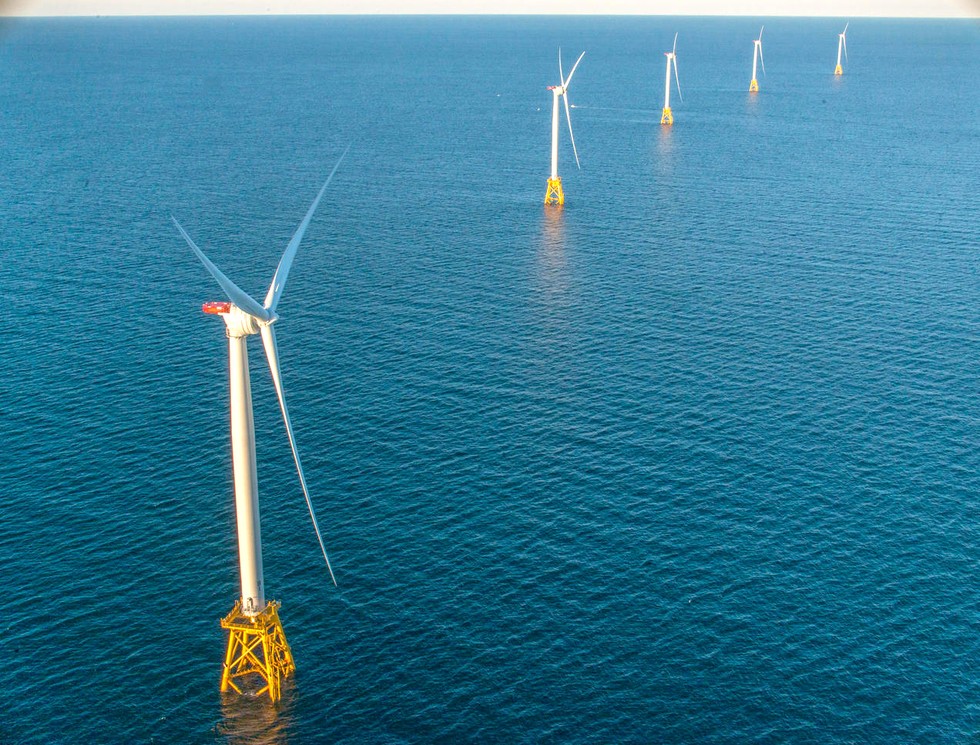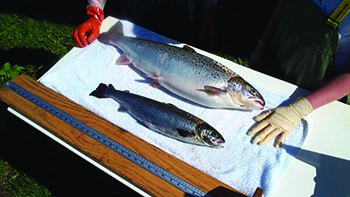The rise and fall of genetically engineered salmon
Published onAfter 35 years, the genetically engineered salmon saga has ended. AquaBounty has closed its genetically modified salmon production facilities after losing millions of dollars trying to market a product for which there is no demand. The AquAdvantage fast-growing salmon was initially developed in 1989 at Memorial University in Newfoundland, and AF Protein in Fortune Bay, Prince Edward Island, Canada, initially sought to bring to it to market. I started reporting on these fast-growing test-tube babies in 2000, when AF Protein reorganized and spun AquaBounty Farms, later called AquaBounty Technologies, into the U.S. with headquarters in Waltham, Mass. The so-calledFrankenfish, may not cease to exist, but the U.S. company, AquaBounty, has ceased its efforts to market the genetically engineered fish. Since its creation, AquaBounty has burned through millions of dollars, trying to clear all the hurdles for FDA approvalincluding creating 100 percent triploid fish incapable ...
Read MoreAquaBounty shares tumble
Published on... proposed salmon farm in Ohio reports from a whistleblower at AquaBountys experimental farm in Indiana have drawn some media attention. According to a report compiled by anti-farmed salmon activists and the Northwest Atlantic Marine Alliance, a former AquaBounty employee, Braydon Humphrey, claims that the Indiana facility regularly violated food and worker safety standards, ignored animal welfare concerns, and has had environmental impacts that investors were unaware of. The report notes that Humphreys accusation that AquaBounty jeopardized its workers health was investigated and dismissed by the Occupational Safety and Health Administration (OSHA). But while regulators may be slow to act, investors reluctance to bid up the share price appears to signal their concerns about the company. The warning from NASDAQ gives AquaBounty until May 1, 2023, to get its share prices up, or be de-listed. An article on the website Intrafish reports that AquaBounty has lost $5.5 million ...
Read MoreMaine state officials end American Aquafarms application for salmon farm
Published onThe Maine Department of Marine Resources terminated the application from American Aquafarms for leasing salmon farm grounds in Frenchman Bay, citing deficiencies in the companys plans for sourcing salmon. The company planned to raise salmon in two 60-acre pens and use the former Maine Fair Trade Lobster plant in Goldsborough as its hatchery and processing plant. But in an April 19 letter, DMR Commissioner Patrick Keliher told the company his agency wont proceed with the application. The letter enumerates at length shortcomings that DMR officials saw in American Aquafarms plans for finding a qualified source/hatchery for its salmon stocking. Based on those findings, it was determined that the source facility documentation provided does not meet standards for a qualified source/hatchery designation, Kelihers letter states. Because American Aquafarms failed to supply the Department with the required information by the deadline provided and because AquaBounty does not meet the ...
Read MoreAquaBounty announces ‘commercial-scale’ salmon harvests, update on new facility
Published onAquaBounty CEO Sylvia Wulf sent a letter to shareholders this week, projecting growth and strength from the companys investment in genetically engineered salmon, as well as an update on the plan for another U.S. facility to be located in Pioneer, Ohio. We began 2021 with a world-class team in place and preparations to make this our breakthrough year, Wulf writes. In the first quarter we completed a public offering of common stock with $127.1 million in gross proceeds, fortifying our balance sheet and positioning us to deliver on our vision for our next farm a 10,000-metric-ton farm of the future. The new farm is projected to produce eight times the output of the companys Albany, Ind., location, which was its first in the United States. The Indiana-based recirculating aquaculture system has an annual capacity of 1,200 metric tons, or 100 tons per ...
Read MoreFoodservice giants reject AquaBounty’s genetically engineered salmon
Published onFoodservice supplier Aramark this week confirmed its boycott of AquaBounty's genetically engineered AquAdvantage salmon. Citing the companys Sustainable Sourcing Policy, Aramark joins ranks with other foodservice leaders Compass Group and Sodexo, as well as a growing list of domestic retailers, seafood companies and restaurants. Reiterating our previously stated opposition to genetically engineered (GE) salmon, we will not purchase it should it come to market. Avoiding potential impacts to wild salmon populations and indigenous communities, whose livelihoods are deeply connected to and often dependent upon this vital resource, is core to our companys commitment to making a positive impact on people and the planet, Aramark's policy states. AquaBounty, a Massachusetts-based biotech firm, prepares to bring its gene-spliced salmon to market from its only U.S. farm in Albany, Ind., in a shifting domestic market that increasingly values origin, health and sustainability, and wild over farmed seafood. Datassential ...
Read MoreTesting the waters: Frankenfish roe cleared to grow
... this unproven product out of the U.S. market until it is shown to be safe for consumption and second to label it clearly and accurately to give consumers a window of confidence in our food system, the FDA's approval guidelines have left a wide berth for unknown risks in the consumption of a lab-created protein, and federal labeling guidelines seem almost scripted to create confusion in the marketplace. Proponents will argue that AquaBounty Technologies, creator of AquAdvantage salmon, passed all standards established by the FDA to show that their gene-spliced salmon/ocean pout hybrid is safe for consumption. The problem is that FDA standards are hardly rigorous. AquaBounty Technologies was required to perform its own tests to establish proof of safety, per federal guidelines: “The data in the application are provided by the company, because the burden of proof is on the sponsor, or company, to ...
Read MoreFDA lifts import alert on GE salmon, clears way for AquaBounty
The United States Food and Drug Administration has lifted an import alert on genetically engineered salmon, paving the way for AquaBounty Technologies to raise and sell its GE salmon in the United States. The FDA announced the decision on March 8 in a prepared statement by FDA Commissioner Scott Gottlieb. The alert was first issued in 2016, and prevented all GE salmon from entering the U.S. That put AquaBounty in a tricky spot, as the eggs used for the company's GE AquAdvantage salmon were sourced in Canada, but the company's new grow-out facilities were located Indiana, U.S.A. While the FDA had previously approved of the facility, the import alert made sourcing their eggs complicated. The import alert was caused by the 2016 Omnibus Appropriations Act, which prevented the delivery or introduction of any GE salmon into interstate commerce until labeling guidelines were developed. The ...
Read MoreOpen season on salmon
It was a banner season for Bristol Bay salmon, but not so much for the rest of Alaska’s salmon fishermen. Still it was better than the slim season most California fishermen got. We celebrated Wild Salmon Day in August and are looking forward to the Year of the Salmon in 2019. And yet, the future of our wild salmon runs is tenuous. The Food and Drug Administration is likely to give AquaBounty the go-ahead to import genetically modified salmon eggs — not-so-lovingly called Frankenfish — to its grow-out facility in Indiana. This story appears in the summer 2018 edition of North Pacific Focus. Subscribe today for digital access and print. Labeling the fish as genetically modified for sale in the U.S. market has also been soft-pedaled by the U.S. Department of Agriculture’s Marketing Service. The Washington Legislature and state agencies continue to press ...
Read MoreFrankenfunk: AquaBounty sells more GMO salmon as losses mount
AquaBounty Technologies’ net loss grew in the first six months of this year, due in part to costs at its salmon farm in Indiana. However, the Massachusetts-based biotech firm completed the second sale of AquAdvantage salmon from its Panama farm. AquaBounty, a producer of genetically modified salmon, did not reveal the retail buyer of the salmon, but it did report that its product revenues rose from $53,278 for the first six months of 2017 to $66,995 in the first six months ending June 30. The company sold its first five tons of product to undisclosed Canadian customers in the summer of 2017. AquaBounty’s net loss rose from $4.1 million in the first six months of 2017 to $5.2 million in the first half of 2018. The company attributed the loss increase to pre-production costs at its farm near Albany, Ind., as well as ...
Read MoreFacing the facts
... deal is done. But a buyout is also a wholesale sacrifice of access to our own fishery resources in exchange for sticking a turbine on the sea floor. Read the whole story from Kirk Moore on page 24. Celebrate your independence by submitting comments on the FDA’s new labeling rules for GMO foods by July 3! These rules will apply to the first genetically modified animal approved for human consumption in the United States — AquaBounty’s AquAdvantage salmon. The proposal states that foods containing ingredients that have been genetically modified must be labeled “bioengineered.” However, the language leaves the door wide open for confusion and obfuscation. The label must indicate GMO ingredients via text OR a symbol OR text message OR an electronic or digital link disclosure — a bar code or similar. Not only does the label not have to say the word “bioengineered,” but it could convey this ...
Read MoreFrankenfish to be crowned ‘bioengineered’: GMO label rules pander to producers
As of Friday, May 4, you have 60 days to submit comments on the FDAs new labeling rules for GMO foods, including the first genetically modified animal approved for human consumption in the United States AquaBountys AquAdvantage salmon. The USDA Agricultural Marketing Service devised the rules, which state that all foods containing ingredients that have been genetically modified must be labeled bioengineered. However, the rules leave the door wide open for confusion and obfuscation. The label must indicate GMO ingredients via text OR a symbol OR text message OR an electronic or digital link disclosure a bar code or similar. (Oh but dont worry, the government has told these manufacturers that theyre not allowed to collect your data when you scan their bar code. Hows that for comfort?) Not only does the label not have to say the word bioengineered, but it could convey this message through one of three ...
Read MoreFDA clears a path for Frankenfish
On Thursday, April 26, the Food and Drug Administration approved AquaBounty Technologies’ genetically modified salmon for production and grow-out at a facility in Albany, Ind. "Our Albany facility is within a few hours' drive of major markets in Indianapolis, Chicago, Detroit, Cleveland, Columbus, Louisville, and St. Louis, providing us with tremendous opportunity for growth,” said AquaBounty CEO Ron Stotish. The last remaining hurdle for the company to import its genetically modified eggs for grow-out and sale in the U.S. marketplace is FDA and Department of Agriculture guidelines for labeling the GM salmon. The FDA approved AquAdvantage salmon for sale in the United States in November 2015 in seven short words: “We approve your original animal drug application.” Uproar over the approval of the nation’s first genetically modified animal for human consumption led to scrutiny of the FDA approval process. The FDA stated itself that the approval ...
Read MoreAquaBounty acknowledges struggles with profitability
Genetically engineered salmon supplier AquaBounty acknowledges it may never achieve profitability, as it seeks to raise $20 million from the sale of its stock and is proceeding with its farm sites in Indiana and Prince Edward Island, Canada. “We have incurred significant losses since our inception. We expect to continue to incur significant losses for the foreseeable future, and we may never achieve or maintain profitability,” the company said in its United States Securities and Exchange Commission filing on Nov. 8. In the filing, AquaBounty said that it seeks to raise $20 million by selling shares of its common stock. Intrexon Corporation, its majority stockholder, is interested in purchasing a minimum of $7.5 million worth of shares “at the public offering price, if the aggregate proceeds to us from this offering are USD 20 million,” AquaBounty said. For the fiscal year ending Dec. 31, 2016, AquaBounty reported operating ...
Read MoreAquaBounty ships first order of GM salmon to Canada
Massachusetts-based company AquaBounty Technologies has sold its first batch of genetically modified AquAdvantage salmon to undisclosed Canadian customers, it announced in its latest earnings report on August 4. The five tons of fish were shipped from the company’s farm site in Panama, and accounted for a sales revenue of $53,000 for the reported quarter, with the gross margin on product sales reaching $3,000. "This quarter marked two milestone events for AquaBounty—the purchase of our first commercial farm site for the production of our eco-friendly AquAdvantage Salmon in the United States and the very first sales of AquAdvantage Salmon,” said Ronald Stotish, Chief Executive Officer of AquaBounty. “The sale and discussions with potential buyers clearly demonstrate that customers want our fish, and we look forward to increasing our production capacity to meet demand." Operating expenses for the company during the current quarter period were slightly ...
Read MoreThe future of Frankenfish
Despite an outpouring of nearly 2 million messages opposing genetically modified salmon, the Food and Drug Administration gave it the nod in 2015. That followed a more than 20-year push by AquaBounty Technologies of Massachusetts for approval of what will be the first GM animal cleared for human consumption. Health Canada approved the fish for consumption last year, saying fillets derived from so-called AquAdvantage salmon "are as safe and nutritious as fillets from farmed Atlantic salmon." Lab technicians at Prince Edward Island currently are creating fertilized Atlantic salmon eggs that include growth-enhancing DNA from two other fish that make them grow twice as fast as natural salmon. The eggs will be shipped to growing tanks in Panama, and then transferred to a land-based aquaculture system in Albany, Indiana. A second facility also is planned for Canada. AquaBounty said they plan to produce 1,300 tons of ...
Read MoreGMO salmon inching toward US markets
AquaBounty’s genetically modified salmon, AquAdvantage, continues to inch closer towards markets in the United States, despite efforts opposing the commercialization of GMO salmon. Walmart and Albertsons are the most recent retail chains to say they will not sell GMO salmon when it becomes commercially available. They joined Target, Ahold, Delhaize America and many other major supermarket companies in deciding against selling GMO salmon. On the political front, Alaska State Rep. Garen Tarr is introducing a bill that would prohibit the sale of genetically modified fish in Alaska. Meanwhile, the U.S. Food and Drug Administration was recently ordered to produce additional documents relating to its approval of AquAdvantage salmon as part of a lawsuit filed last March by environmental groups, fishing organizations and others. The plaintiffs contend that the FDA should never have been the agency to approve GMO salmon, since it oversees veterinary drugs, not whole fish for ...
Read More




